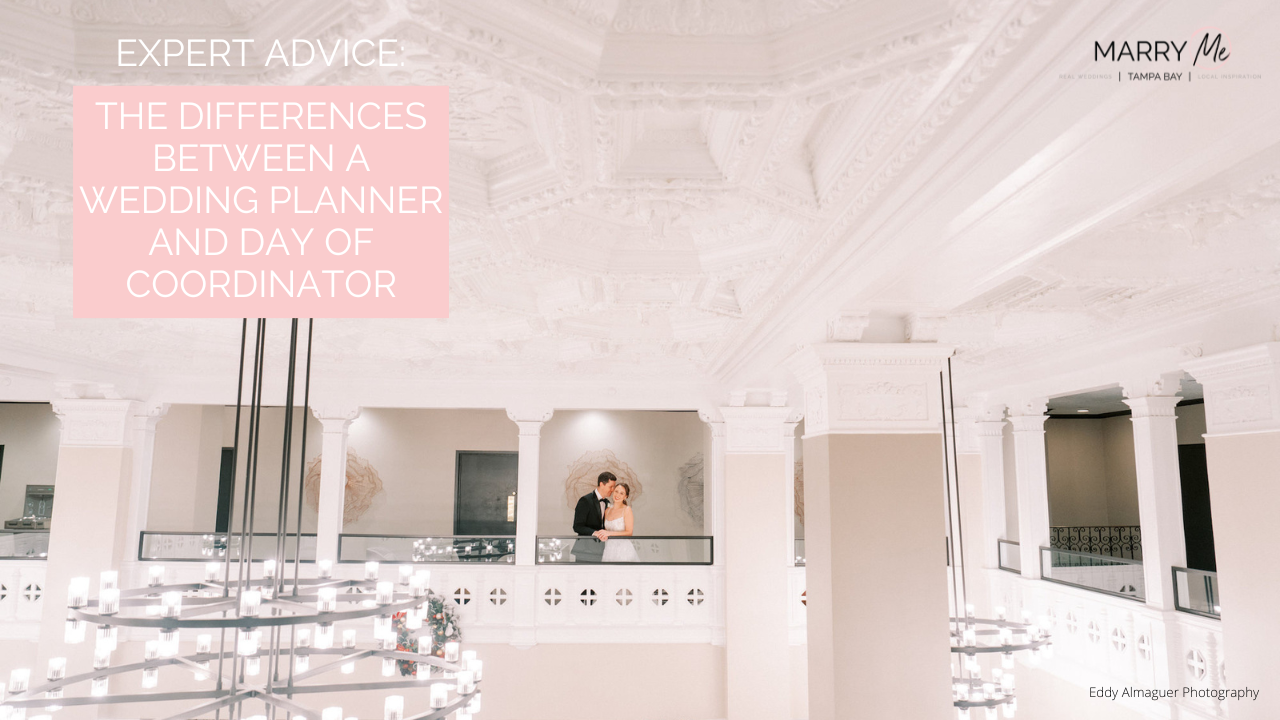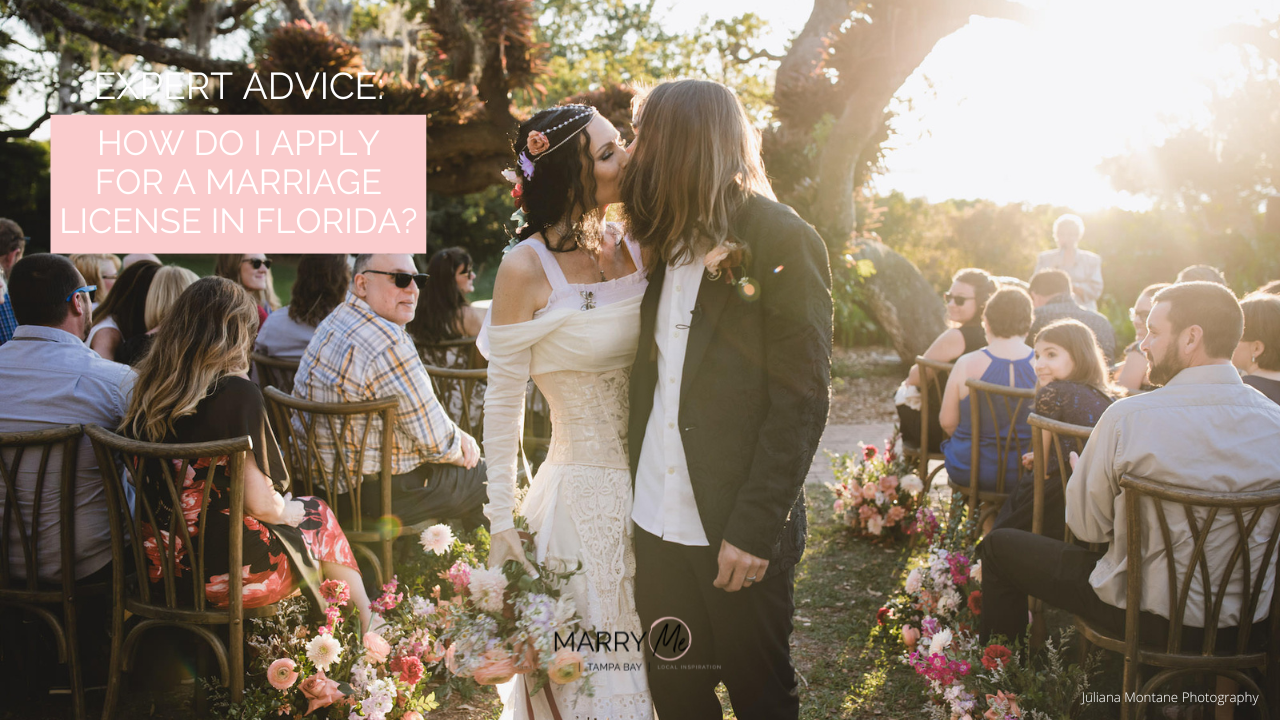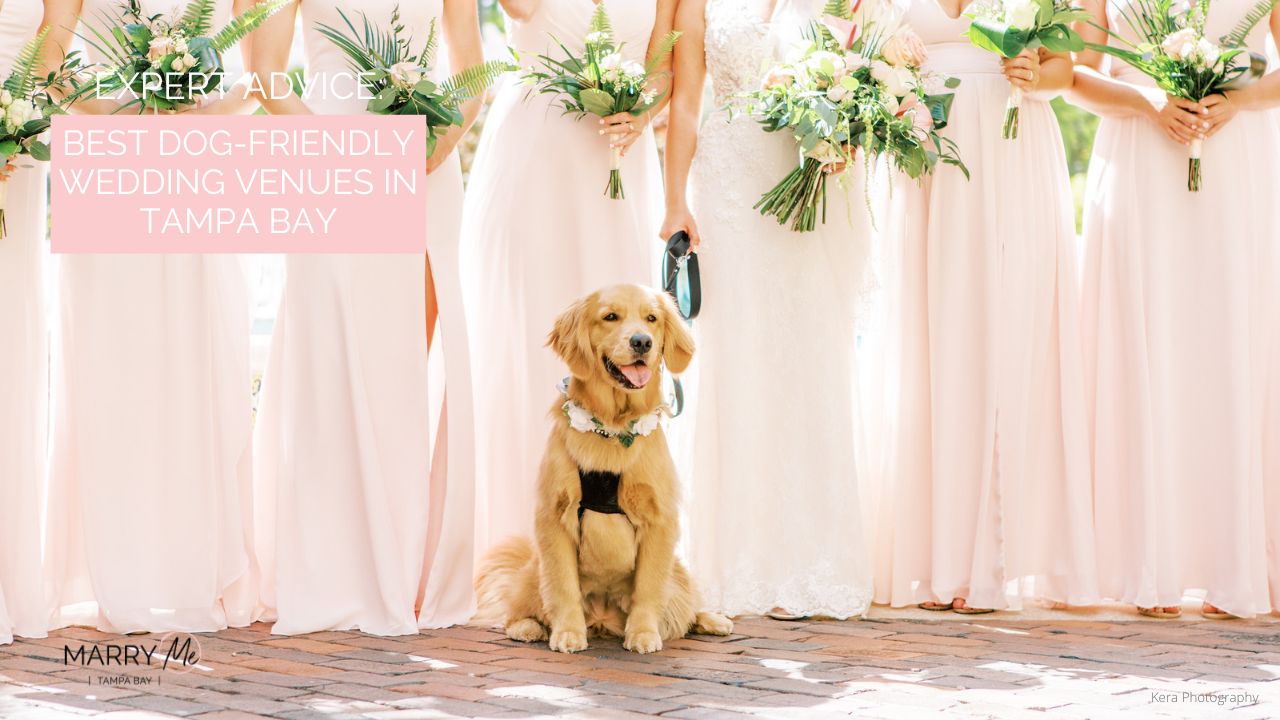Advice is an important aspect of our publication so that you can make educated wedding planning decisions. One tip that we tell all of our couples, no matter their budget or guest count, is to hire a wedding planner.
The roles of a full-service wedding planner and a day-of coordinator are vital yet distinctly different. Understanding these differences is crucial, as many couples mistakenly think a day-of planner has similar roles to that of a full-service one.
“Full-service wedding planning is a relationship, whereas day-of coordination is a date and time. Both exist to fulfill certain roles based on the needs of the couple and are typically paid a flat fee for a certain level of planning or an hourly rate based on estimated time. Most luxury weddings or those with several moving parts will require a full-service planner as they are largely involved from the outset, planning months (or years) in advance by helping to acquire the venue, vendors, space, and decor. Day-of coordination is simply to make sure the event runs smoothly the day of with a clear itinerary and a proactive approach to the timeline. The best way to proceed is to decide which is best for you and what is in the budget.” -Brandon Wheeler, Gulf Beach Weddings
“There are so many differences between day-of coordination and full-service coordination, so it is important to understand what is most important to you. Do you enjoy planning and organizing, especially in regard to email correspondence and vendor research? Do you have enough time in your personal work schedule to allocate a decent amount of time to wedding planning, especially in the first two to four months after selecting your venue? Do you like designing and understanding your vision? Do you want to be involved in less of the planning and coordinating and more of just decision making with less stress? These are just a few questions to start with!” Lauren Gertz, of MDP Events
To learn which type of planner best suits your needs, we asked our preferred Marry Me Tampa Bay wedding planners for insight on the differences between a day-of and full-service wedding planner.
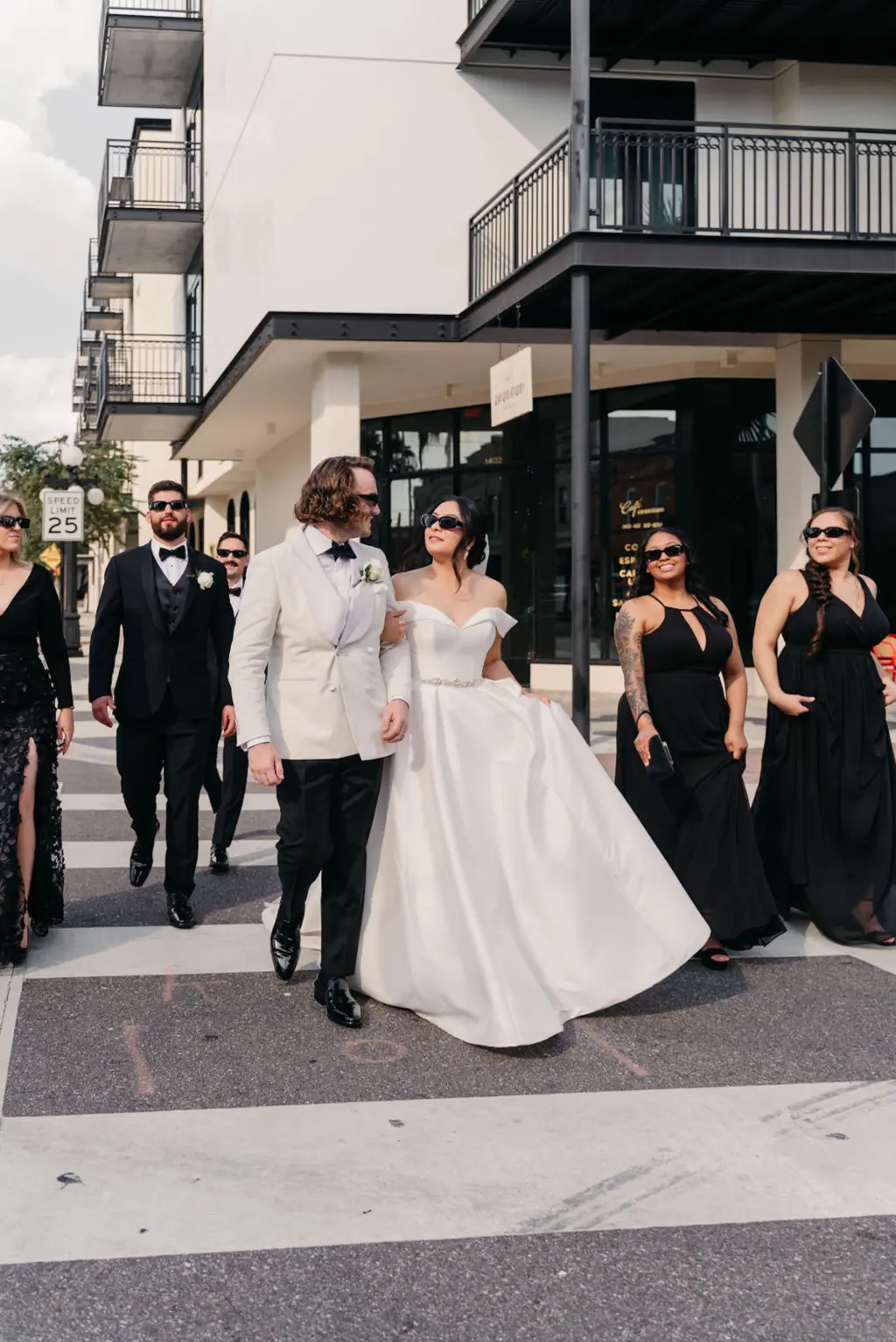
Whimsical Moody Wedding | UNIQUE Weddings + Events | CreatedFour
The Role of a Day-of Coordinator
“Think about your day-of coordinator as your behind-the-scenes hero who will advocate for you and your fiancé no matter what and will be able to troubleshoot any unexpected issues or challenges that can arise on the wedding day. They listen to your concerns, communicate your preferences to vendors, and make decisions with your best interests in mind. A day-of coordinator serves as the central point of contact for all vendors, such as caterers, florists, musicians, and photographers, and can efficiently address any issues that might arise in a timely manner, so you and your fiancé won’t even notice that something has happened. I also like to call myself a chaos coordinator who solves problems you never knew existed in ways that will blow your mind! One of our most valuable qualities is our ability to think quickly and adapt to changing circumstances. Whether it's rearranging the timeline, improvising decor solutions, or resolving conflicts among guests, we navigate challenges with grace and professionalism.” -Anna Shvaykova, Breezin Weddings
“Day-of coordination is an odd name. Our team prefers wedding day management. No one can walk in on the wedding day and know everything you’ve contracted for, family dynamics, and how everything fits together. We invest a reasonable amount of time working with the couple leading up to the wedding. Not only to learn about who they have hired and what the expectations are but to make sure you haven’t missed anything. There are many times that couples still need to finalize details with wedding vendors and have last-minute details that fall off of their radar. We help pick up the pieces so things run smoothly on the wedding day. Wedding day management is all about troubleshooting and organization.” -Tammy Waterman, Special Moments Event Planning
“Wedding planners typically have a few different service levels, depending on the needs of the client and the specifics of the wedding. You should hire a day-of coordinator, but it's important to understand that day-of coordination, or event management as we call it, has a number of limitations. A day-of coordination or event management package is a service level that is focused on the weeks leading up to and on the wedding day only. The wedding planner will only execute the wedding that the couple has planned. The planner does not get involved in the planning of the wedding prior to that time, so if you are someone who is comfortable with the planning process but would like to hand things off to a professional to tie up loose ends and be the ‘go to' in the days leading up to and on the wedding day, then day-of coordination or event management is perfect for you.” -Staci Mandikas, UNIQUE Weddings + Events
“Day of coordination is all about hiring a team to manage the logistics and timing of your day so you can relax and know it's all taken care of. It's the service you choose if you feel like you can manage designing and planning your wedding but don't want to be worried about any of the details on your wedding day. Typically, this starts anywhere from 30-60 days from your date, so all of the planning is done. Your coordinator should be helping you wrap things up, create your timeline, and be present to manage the event. At a minimum, a day of coordinator is a must have and some venues even require it.” -Karen Cerboni, EventFull Weddings
“Day of Coordination — the superhero of last-minute details! This service is for those who have taken charge of the planning but want to ensure everything runs smoothly as the big day approaches. Every planning company has a different level of day of coordination or event management. Typically, your coordinator jumps into action about eight to four weeks before your wedding, tying up loose ends, confirming vendor contracts, and creating a comprehensive timeline that ensures everything unfolds seamlessly on the day. A lot of planners in the area offer pre-service tools such as checklists, preferred vendor lists, and more. They're like your personal wedding chaperone, guiding you through the final stretch of the journey with ease and expertise.” -Ashley Johsnon, B Eventful
“Maybe wedding planning and organization is your jam, and you love doing it. If that is the case, this is where just a day-coordinator will suffice. You get to do all the planning on your own from start to finish. It completely falls on you, and you are responsible for the vendors you book and the design. The coordinator will come in and just tie together all of the loose ends so you can enjoy your wedding day! We confirm your vendors, do your timeline, run your rehearsal, and are there from start to finish on the wedding day to make sure everything is running smoothly and just how you planned it!” -Delaney Driver, Wilder Mind Events
“Day-of coordination is meant to help with the actual day of only. That being said, some planners offer month-of coordination and will answer any email questions or give vendor recommendations along the way. We assist with putting together the timeline, floor plan, seating design, vendor details, and vendor contact information for your stress-free big day! We start working together four months out and also do a venue site visit to make sure everything is all set for your celebration. Your DOC is there to manage all of your vendors so everyone understands where they are going, what they are setting up, and how the timing of the day will run. They are there to make sure you don’t have to worry about anything, and you can just get ready, enjoy pictures, and take every moment in without any stress. Instead of having family and friends set up all of your personal details, hire day-of or full-service planning so everyone at your wedding can celebrate you and not have to worry about the details. However, all coordination options are different, and there are lots of options in between that you can determine are best for you.” -Lauren Gertz, MDP Events
“With day-of coordination, we don’t come in until the final 30 days. At this point, all contracts are signed, payments have been made, the design has been decided, and all the vendors and logistics have been locked in. We are there on the day to make sure the timeline flows smoothly, all decor is set up correctly, and all vendors have a single point of contact so you and all family members can enjoy your day! Day-of coordination allows us to handle anything that comes up on your day and all wedding day logistics, but all additional logistics are handled beforehand.” -Danyle Longenecker, Elegant Affairs by Design
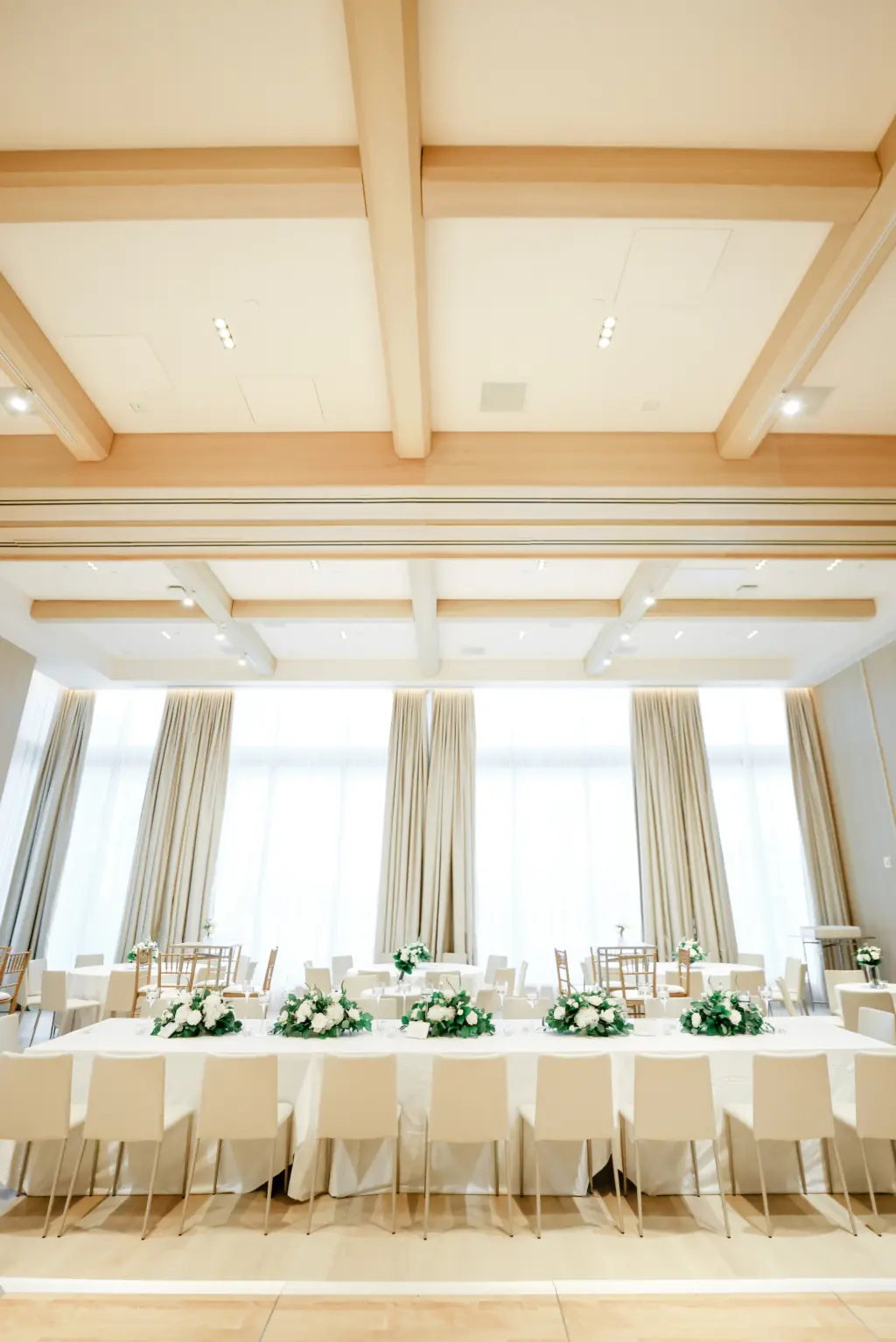
Classic Modern Luxe Downtown Tampa Wedding | Breezin' Weddings | Lifelong Photography Studio
The Role of a Full-Service Wedding Planner
“A full-service wedding planner takes care of the wedding from beginning to end. This includes creating a wedding concept and a design portfolio, recommending vendors, attending and assisting with venue selections, scheduling meetings with vendors, as well as booking vendors, managing the budget, assisting with hotel bookings for guests, booking and assisting with rehearsal dinner, running the rehearsal, handling the day-of coordination, and so much more! We are there to hold your hand and assist you with exactly what you want us to handle. Wedding planning is essentially a part-time job for most couples; if they don't want to feel that additional pressure and stress; a full-service planner is exactly what you need!” -Kelci Zicconi, Owner, Kelci Leigh Events
“If you have a busy personal or professional schedule, then full-service wedding planning is a great option for you. There are much fewer limitations within this level of service, as the planner takes on the full responsibility of all of the planning of the wedding. It can take an additional 10-20 hours a week to plan a wedding, so a couple must ask themselves, do they have the time to take on the time equivalent of a part-time job? And, being available during business hours will also need to be required as multiple emails, phone calls, and meetings will need to take place during the week, during the typical 9-5 hours. Wedding vendors are very busy on the weekends doing events, so they will do most of their ‘office work' and meetings during the week, and most of them have very limited availability during the weeknights, as they have families themselves.” -Staci Mandikas, Owner, UNIQUE Weddings + Events
“The role of a wedding coordinator includes so much. If you’re just doing day of coordinating, we typically start helping at about 60 days out. We always try to help with simple questions along the way as well with this package but having a full wedding planner is truly a blessing because we help from day one. We can literally help with everything, including logistics, finding your vendors, creating a vision with a mood board, and finding the best vendors to make your wedding day dream come alive. We help by attending all meetings with the vendors, getting them booked, aligning them with your budget, and making all the details come to life. We also help with contracts and all the details. The great thing about full planning is it helps keep your overall design in line throughout the entire process. Not only with the florals and decor but also through stationery, save the dates, and website design. It truly entails so much and helps with everything from day one. Plus, having a professional who you can trust from day one with everything is so great. It really takes the event from start to finish and takes so much of the stress of all the details off your shoulders ” -Katy Martin, Coastal Coordinating
“By hiring a full planner, you not only benefit from their knowledge and organizational skills but also from their role as a supportive ally throughout the entire wedding planning process. A full-service planner serves as a trusted confidant, offering reassurance, encouragement, and a listening ear during moments of uncertainty or overwhelm. Guiding you through decision-making, a full-service planner ensures choices align with your vision, preferences, and budget. Additionally, a full-service planner alleviates much of the stress and pressure by handling the bulk of the planning responsibilities, allowing you to focus on enjoying the journey rather than stressing over it.” -Anna Shvaykova, Lead Wedding Planner, Breezin Weddings
“For us, full-service wedding planning is about building relationships. There is a lot of time invested by our team and the couple, and you want to be a good fit for each other. Part of our responsibility is to help you create an event that reflects the two of you. It’s not our day! We’re here to assist you in finding the best wedding vendors, keep planning on track, and make a day that’s all about the couple’s cultures, families, and personalities.” -Tammy Waterman, Special Moments Event Planning
“Your full-service planner will start working with you from the very beginning stages, including creating a budget and picking your venue. The planner is there to do all the heavy lifting for you when it comes to sourcing vendors, securing quotes, and finalizing contracts. You don't have to worry about trying to respond to emails and phone calls from a ton of different wedding vendors or sourcing vendors from an overwhelming number of possibilities. You should be left with the fun stuff, like choosing from the options your planner has presented. Full planning is the absolute best way to make your wedding planning journey memorable.” -Karen Cerboni, EventFull Weddings
“Full planning services are similar to having your own personal fairy godmother to guide you every step of the way. With this service, you hand over the reins to a professional wedding planner who becomes your partner-in-crime throughout the entire journey. From selecting the perfect venue to choosing the color scheme, creating the guest list, managing vendors, and even handling the tiniest details such as signage and layouts. It's like having a wedding wizard who waves their magic wand to make your dream day a reality.” -Ashley Johnson, B Eventful
“When you are starting to plan your wedding, it can be hard to know the difference between what wedding planning services you should choose. Full-service wedding planners are going to help you from start to finish. Full-service is for you if you are unorganized, have a super busy work schedule, or just want an easy wedding planning experience. You basically get to have fun in wedding planning since our job is to track everyone down and handle most of the communication for you. We love working with our full-service clients because we work so closely with you and your fiance' for a year to two years out. We are your soundboard for all the things, and we really speed up the decision-making process since you get our advice every step of the way. For example, we are able to help select vendors for you based on our experience and knowing their personalities well. That way we can match you with people that are totally your vibe! We also love full-service wedding planning because we are able to bounce ideas off of you and present ideas that you may have never thought about doing!” -Delaney Driver, Wilder Mind Events
“If you don’t get much enjoyment out of the outreach, planning, organizing, and also don’t have much time in your own personal and work schedule, full-service may be for you if it is in your budget! It is important to know that although it is full-service, and we provide complete management, you still have the final answer and vision behind your own wedding day. Full-service manages all of your vendor recommendations and outreach, all correspondence to inquire and edit proposals, your design from florals and rentals to invitations and day of details, all of your guest transportation and accommodations, your welcome bags and budget spreadsheet, and of course, your wedding day from start to finish as well as everything in between!” -Lauren Gertz, MDP Events
Which is Right For Me?
“When deciding between full-service planning or day-of coordination, it's essential to reflect on how involved you want to be in the planning journey. If you prefer a more hands-off approach and trust the expertise of your planner, full-service planning might be the perfect fit. On the other hand, if you enjoy being more hands-on but want assistance with executing your vision on the big day, a day-of coordinator could be the ideal choice. It's all about finding the right balance that aligns with your personality and preferences.” -Anna Shvaykova, Lead Wedding Planner, Breezin Weddings
“Planning a wedding entails the meticulous coordination of various elements, each playing a vital role in the success of your special day. Different tiers of wedding planning support exist to guarantee a seamless execution of all aspects involved. When exploring what level of service would best fit your needs, wants, and lifestyle, start by considering the following questions. How much time do you have to devote to wedding planning? Does having a full-service wedding planner fit your budget? What do you think your strengths and weaknesses would be if you planned your wedding on your own, and would a professional be able to help you with those weaknesses? Do you prefer someone to lead you through the planning process, work alongside you, or just help finalize your final details? These questions can help guide you to the correct planning service.” -Ashley Johnson, Owner and Lead Planner, B Eventful
“Another option is a mid-level service, such as design or partial planning. It's a good option for couples who have a somewhat flexible schedule and are comfortable with the planning process but still want the experience and expertise of a wedding planner involved. Not all wedding planners offer this, so it's important to gather initial package and pricing information from any wedding planner that you are considering, so you understand the different levels of service that they provide.” -Staci Mandikas, UNIQUE Weddings + Events
“The great thing about our packages is that we have packages for just the day of the couple, or the advisory package, which is the middle package that helps along the way with many of the details. This is great for a hands-on couple who still wants help from day one. I think if you are very hands-on and want to do everything on your own, a day of coordinating is perfect, but making sure you have someone along the way makes sure that everything that you made the decision on aligns with what you really want and really flows. In the end, having all your decisions and everything come together is the goal.” -Katy Martin, Coastal Coordinating
“If you want to be involved but are very hands-off, I would go the full-service route and trust the wedding pro you hired! Once you have designed and finalized your wedding concept, they will keep you in the loop, on track, and organized. Have faith in your planner! This is why you hired them! If you have the time, understand your vision, and are very organized in your planning process but want to be hands-free the day of your event, I would go for the day-of coordinator!” -Kelci Zicconi, Owner, Kelci Leigh Events
“If you have the time to plan your wedding, a good sense of design, and are very organized, you may want to consider at least the day of coordinator. However, if you feel overwhelmed by the process and have a busy life and work schedule, you should definitely consider full planning. Ask any couple if hiring a full planner was worth it, and the answer would be absolutely yes!” -Karen Cerboni, EventFull Weddings
“It’s important to evaluate what is important to you, how involved you want to be in the process, and what your budget will allow for. Regardless of the choice, it is crucial to have a planner at some point in the process!” -Danyle Longenecker, Lead Wedding Planner, Elegant Affairs by Design

